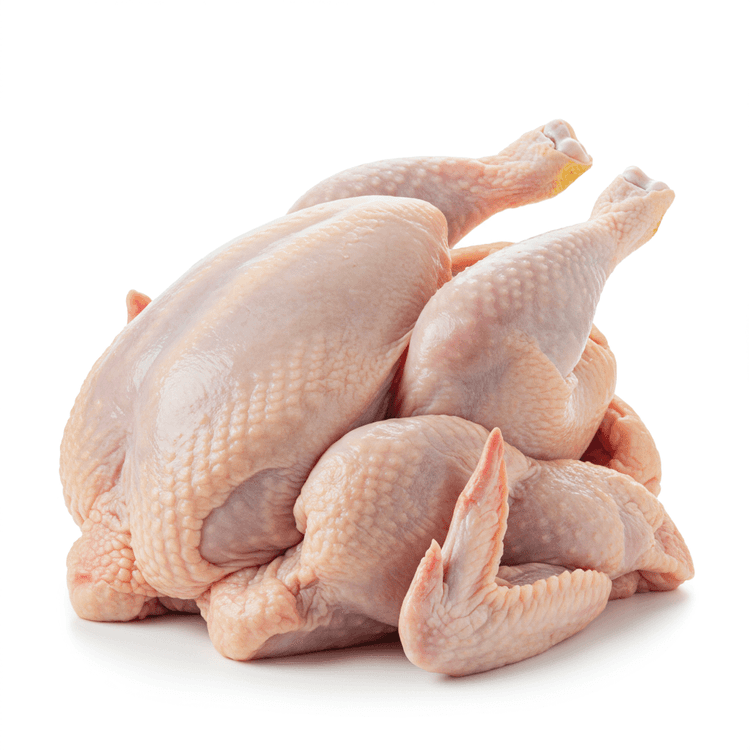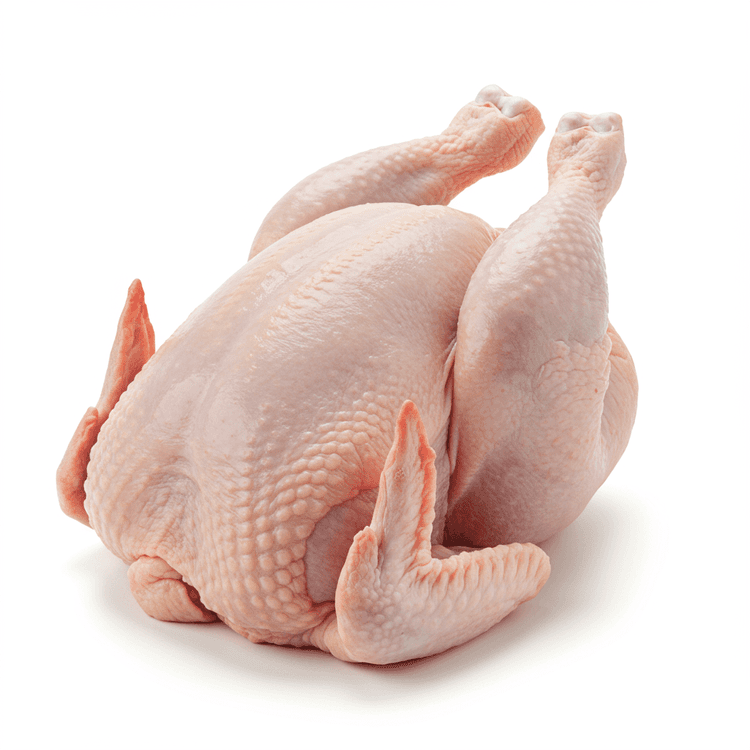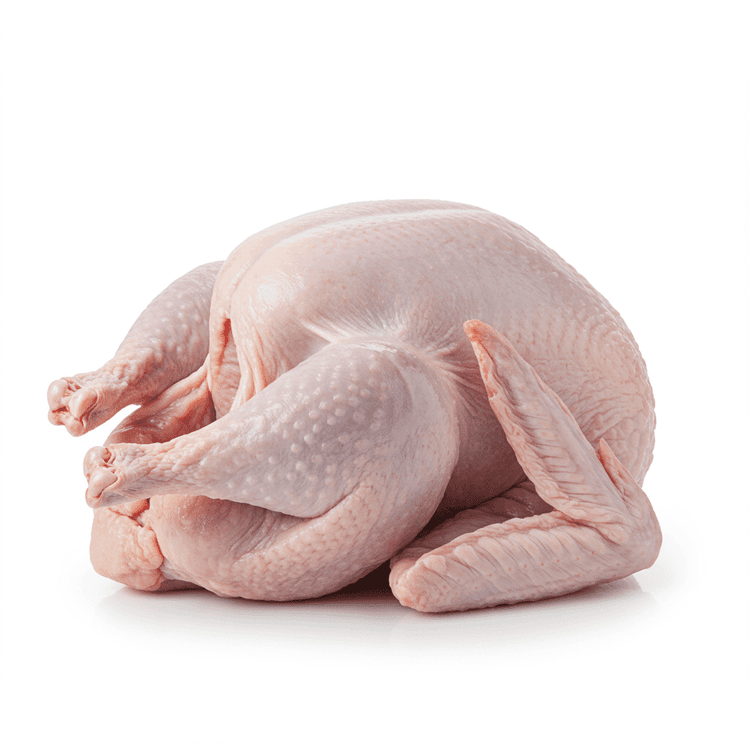
Cornish Hen
Cornish hen, also known as Rock Cornish game hen, is a small, immature chicken, typically weighing around one to two pounds. It offers a tender and delicate flavor, often described as a milder version of chicken. Its small size makes it ideal for individual servings, and its lean meat cooks relatively quickly. The skin, when roasted or grilled, becomes beautifully crisp and golden brown. Cornish hens are a versatile poultry option, perfect for special occasions or elevating everyday meals. You can find these in the poultry section of most major grocery stores, sometimes fresh and sometimes frozen.
Common Uses
- Cornish hens are often roasted whole, stuffed with flavorful ingredients like herbs, rice, or vegetables, and served as an elegant main course. This presentation is perfect for special occasions.
- They can be grilled or barbecued for a smoky flavor. Marinating the hen beforehand ensures tenderness and adds extra flavor depth.
- Cornish hens can be pan-fried or sautéed, offering a quicker cooking method and a crispy skin. Consider using herbs and spices in the cooking process.
- The meat from cooked cornish hens can be shredded or diced and used in salads, sandwiches, or wraps for a light and flavorful meal. It's a great way to use up leftovers.
- Braising cornish hens in a flavorful liquid, such as wine or stock, creates a tender and succulent dish. This is especially great for tougher, less fresh birds.
- Cornish hens can be used in place of chicken in many recipes. This will result in individual portions of the meal, adding a unique touch.
Nutrition (per serving)
Nutrition (per serving)
Calories
809.8kcal (40.49%)
Protein
97.8g (100%)
Carbs
0.0g
Sugars
0.0g
Healthy Fat
26.8g
Unhealthy Fat
12.5g
% Daily Value based on a 2000 calorie diet
Nutrition (per serving)
Calories
809.8kcal (40.49%)
Protein
97.8g (100%)
Carbs
0.0g
Sugars
0.0g
Healthy Fat
26.8g
Unhealthy Fat
12.5g
% Daily Value based on a 2000 calorie diet
Health Benefits
- Provides a good source of lean protein, essential for muscle building and repair.
- Rich in B vitamins, which support energy metabolism and nervous system function.
- Contains selenium, an antioxidant that helps protect against cell damage.
- Offers iron, vital for red blood cell production and preventing anemia.
- Supplies phosphorus, important for bone health and energy production.
- A good source of niacin, contributing to healthy skin and digestion.
Substitutes
Chefadora AI is here.
Experience smarter, stress-free cooking.
Storage Tips
Fresh Cornish hens should be stored in the refrigerator and used within 1-2 days. To extend their shelf life, wrap them tightly in plastic wrap or freezer paper and freeze for up to 9-12 months. When thawing, do so in the refrigerator to prevent bacterial growth. Cooked Cornish hens should be refrigerated promptly and consumed within 3-4 days. Ensure proper airtight packaging to prevent freezer burn when freezing.
Marnirni-apinthi Building, Lot Fourteen,
North Terrace, Adelaide, South Australia, 5000
Australia



